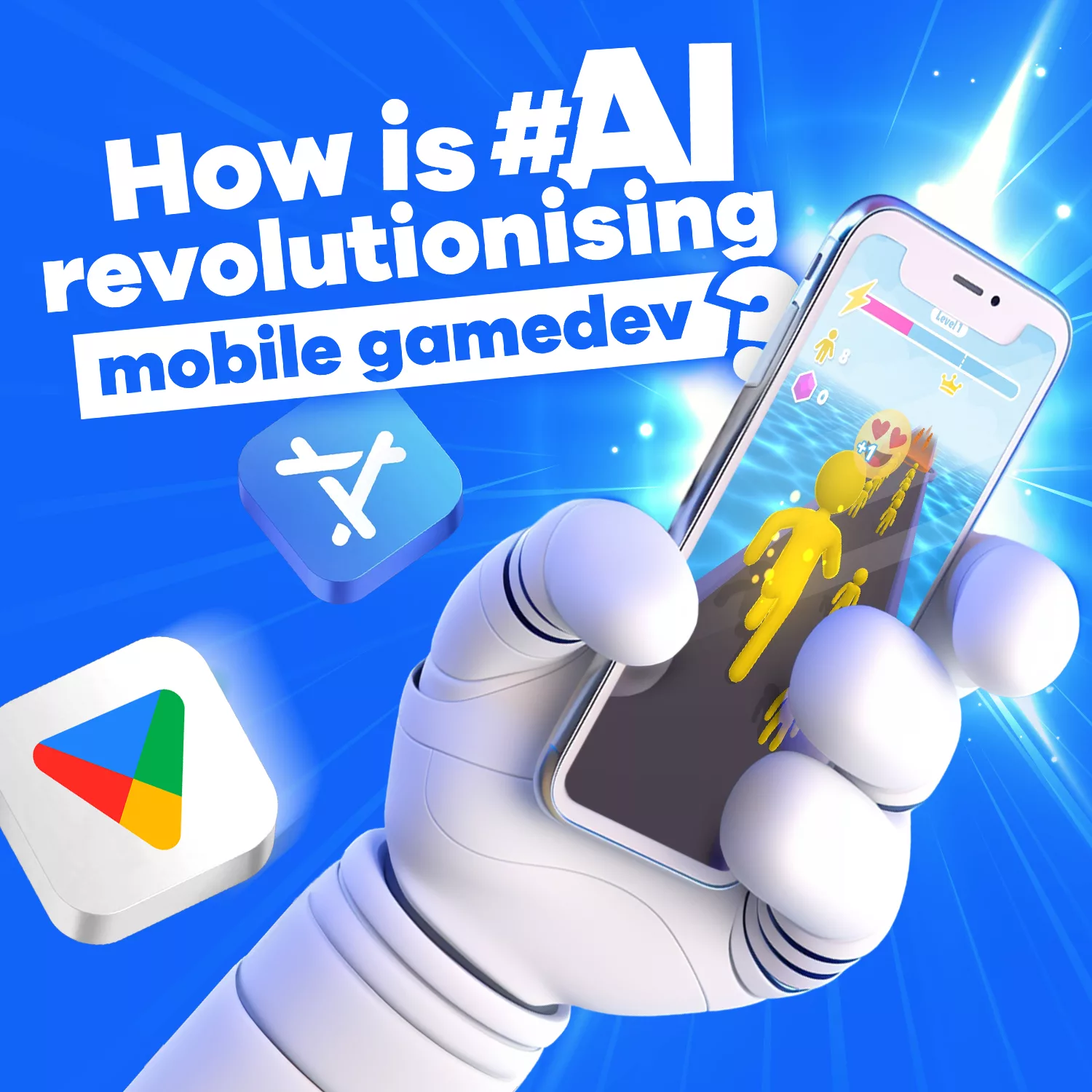AI in Mobile Gaming: How Artificial Intelligence Is Changing Games
Related Articles
- How to Play the Game Elastic Man
- Level Up Your Life: How Video Game Therapy Can Help You Conquer Real-World Challenges
- How to Play the Game Mini Golf Adventure
- How to Play the Game Blocky Battle Royale
- How to Play the Game Stickman Street Fighting
Introduction
Join us as we explore AI in Mobile Gaming: How Artificial Intelligence Is Changing Games, packed with exciting updates
AI in Mobile Gaming: How Artificial Intelligence Is Changing Games

The world of mobile gaming has exploded in recent years, becoming a multi-billion dollar industry and a significant part of our daily lives. But beyond the colorful graphics and addictive gameplay, a silent revolution is taking place – the rise of Artificial Intelligence (AI). AI is no longer just a futuristic concept; it’s actively shaping the mobile gaming landscape, transforming how we play, interact, and experience games.
This article delves into the fascinating world of AI in mobile gaming, exploring its diverse applications, the impact on gameplay, and the future it holds. We’ll uncover how AI is enhancing our gaming experiences, from creating more engaging and challenging opponents to personalizing our gameplay and even revolutionizing game design.
The Rise of AI-Powered Opponents:
One of the most prominent applications of AI in mobile gaming is in creating intelligent and adaptable opponents. Gone are the days of predictable, repetitive bots. Modern AI-powered opponents learn, adapt, and challenge players in ways that feel real and engaging.
1. Machine Learning: The Brains Behind the Bots:
Machine learning (ML) is a key driving force behind these advanced opponents. ML algorithms analyze vast amounts of data, including player actions, strategies, and even emotional responses, to learn and improve their own gameplay. This allows them to predict player moves, anticipate strategies, and respond accordingly.
2. Deep Learning: Mastering Complexity:
A subset of ML, deep learning, takes this a step further by using complex neural networks to model human behavior. Deep learning algorithms can learn from vast amounts of data, including real-world gameplay footage, to create opponents that mimic human decision-making processes. This results in opponents that are not only challenging but also surprisingly human-like in their reactions and strategies.
3. Adaptive Difficulty: A Personalized Challenge:
AI-powered opponents can dynamically adjust their difficulty based on the player’s skill level. This creates a more personalized experience, ensuring that players are constantly challenged without becoming frustrated. Whether you’re a seasoned veteran or a casual gamer, AI can provide a tailored challenge that keeps you engaged.

Beyond Opponents: AI’s Diverse Applications:
AI’s influence in mobile gaming extends far beyond just creating challenging opponents. It’s transforming various aspects of the gaming experience, from game design and development to player engagement and monetization.
1. Game Design and Development:
AI is revolutionizing game design, enabling developers to create more complex and engaging worlds.
- Procedural Content Generation: AI can generate levels, environments, and even characters, reducing the workload for developers and allowing for infinite replayability.
- Level Design Optimization: AI algorithms can analyze player data and feedback to identify areas for improvement in level design, leading to more balanced and enjoyable gameplay.
- Character Development: AI can create dynamic characters with unique personalities, motivations, and reactions, enhancing the storytelling and immersion in the game.
2. Player Engagement and Monetization:
AI is also playing a crucial role in keeping players engaged and invested in mobile games.
- Personalized Recommendations: AI algorithms analyze player data and preferences to recommend relevant content, like new levels, characters, or events, increasing player engagement and retention.
- Targeted Marketing: AI-powered marketing strategies can personalize advertisements and promotions based on player behavior, leading to more effective campaigns and increased revenue.
- In-Game Economy Management: AI can optimize the in-game economy, ensuring that players have a balanced experience while providing opportunities for monetization through microtransactions.
3. Accessibility and Inclusivity:
AI is also paving the way for more accessible and inclusive gaming experiences.
- Adaptive Controls: AI can adjust game controls to suit players with disabilities, allowing them to enjoy games that would otherwise be inaccessible.
- Language Translation: AI-powered translation tools can break down language barriers, allowing players from different cultures to connect and enjoy games together.
- Personalized Difficulty: AI can dynamically adjust game difficulty based on individual player needs, ensuring that everyone can enjoy a challenging and rewarding experience.
The Future of AI in Mobile Gaming:
The future of AI in mobile gaming is bright and full of possibilities. We can expect to see even more innovative applications of AI, further enhancing the gaming experience and blurring the lines between reality and virtual worlds.
1. Immersive Virtual Worlds:
AI will play a crucial role in creating more immersive virtual worlds, blurring the lines between real life and the digital realm. AI-powered NPCs will become more lifelike, reacting to player actions and creating believable interactions.
2. Adaptive Storytelling:
AI will enable games to tell dynamic stories that adapt to player choices and actions, creating a truly personalized narrative experience.
3. AI-Powered Game Design:
AI will become increasingly involved in the game design process, automating tasks, generating content, and even creating entirely new game genres.
4. The Rise of AI-Assisted Gaming:
AI will become an integral part of the gaming experience, assisting players with gameplay, providing strategic advice, and even creating personalized challenges.
Challenges and Ethical Considerations:
While the potential benefits of AI in mobile gaming are vast, it’s crucial to acknowledge the challenges and ethical considerations that come with this technology.
- Data Privacy and Security: AI requires vast amounts of data, raising concerns about player privacy and the potential for misuse of personal information.
- AI Bias and Fairness: AI algorithms can inherit biases from the data they are trained on, leading to unfair or discriminatory outcomes in game mechanics.
- Job Displacement: As AI takes on more tasks traditionally performed by human developers and designers, concerns about job displacement arise.
Addressing these challenges and ensuring responsible development and deployment of AI in mobile gaming will be crucial for its continued growth and success.
Conclusion:
AI is transforming the mobile gaming landscape, creating a more immersive, engaging, and personalized experience for players. From intelligent opponents to personalized recommendations and adaptive gameplay, AI is shaping the future of mobile gaming in exciting and innovative ways. As AI technology continues to evolve, we can expect to see even more groundbreaking applications that will redefine our understanding of what mobile gaming can be.
Source URL:
[Insert relevant source URL here]
Closure
Thank you for reading! Stay with us for more insights on AI in Mobile Gaming: How Artificial Intelligence Is Changing Games.
Don’t forget to check back for the latest news and updates on AI in Mobile Gaming: How Artificial Intelligence Is Changing Games!
We’d love to hear your thoughts about AI in Mobile Gaming: How Artificial Intelligence Is Changing Games—leave your comments below!
Stay informed with our next updates on AI in Mobile Gaming: How Artificial Intelligence Is Changing Games and other exciting topics.


